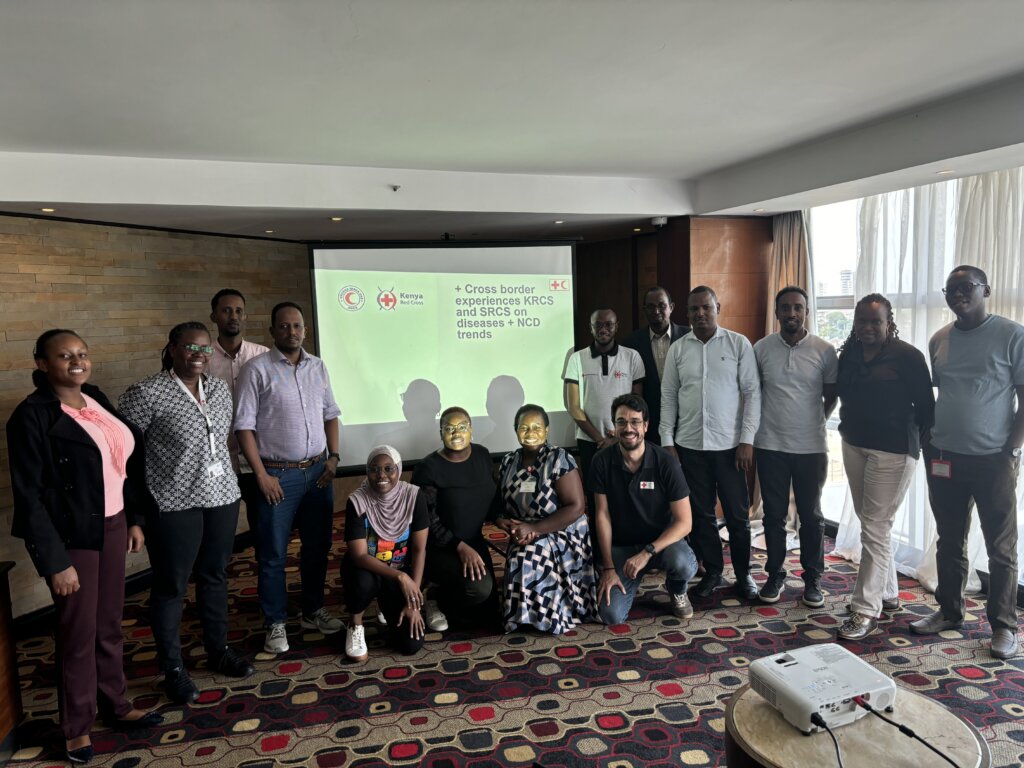Efficient data management is the backbone of modern humanitarian operations. It enhances coordination, decision-making, and resource allocation by providing reliable, real-time data for better planning and impact assessment. Data management systems also increase transparency, accountability, and preparedness, ensuring aid reaches the most vulnerable. To support National Red Cross and Red Crescent Societies in navigating and autonomously maintaining their data systems, the Netherlands Red Cross’ data and digital initiative, 510, offers a tailored service that simplifies this complex task. This initiative has proven successful in various contexts, improving the data management of cash assistance programmes in Ukraine et le monitoring of healthcare services in Greece. Most recently, the 510 team assisted the Danish Red Cross in developing a digital referral platform for cross-border patients with non-communicable diseases between Kenya and Somalia.
Transforming healthcare for displaced communities…
Non-communicable diseases such as cancer, asthma and diabetes are the cause of nearly 70% of global deaths. This disproportionately impacts people on the move who often face increased health risks due to limited access to healthcare and medicine, while often already exposed to violent tensions and extreme weather conditions while in search of safety. To ensure continuity of care for cross-border patients between Dadaab refugee camp in Garissa, Kenya and Lower Juba, Somalia, the Kenya Red Cross Society and the Somali Red Crescent Society, in partnership with the Danish Red Cross, are collaborating to improve the management of such cases. This initiative is funded by the World Diabetes Foundation.
… with a digital spin
As part of this programme, the Danish Red Cross has spearheaded efforts to create a platform which facilitates the referral of patients with non-communicable diseases between the two countries. The 510 team has assisted the Danish Red Cross in configuring an easy-to-use data management system using open-source software EspoCRM, and adapting it for medical tracking purposes. A standout feature of this setup is the integration of EspoCRM with local communications service Africa’s Talking to perform mass messaging. This way, patients can access information on their health(care) status via SMS and receive tips for practicing self-care in difficult circumstances, ensuring they receive the support they need. The set-up is simple to set up and maintain autonomously. Tailored to meeting context-specific needs, the system is user-friendly and scalable, allowing National Societies to adopt and adapt it as their requirements evolve.
“Building a sustainable solution using open-source technology has been crucial in ensuring ownership by both National Societies. With 510’s expertise, we’ve been able to accurately assess needs and customise the system to meet specific requirements pertaining to non-communicable diseases.
Arnau Rovira Muntada, Information Management Officer at the Danish Red Cross

The impact of enhancing care for non-communicable disease patients
Resources can be scarce in humanitarian settings, with displaced populations often facing lacklustre access to consistent treatment and medical supplies. Integrating the treatment of patients with non-communicable diseases into the services of National Societies collaborating across borders, by means of a comprehensive digital referral platform, has ensured that individuals with these conditions receive continuous and comprehensive care as smoothly as possible.
“With simplified digital innovation, patients on the move have access to continuity of care for non-communicable diseases as they go across borders, whenever and wherever they need .”
Dr. Omar Sheikh Mohamud Nur, Primary Healthcare Manager at the Somali Red Crescent Society
“The referral tracker revolutionises the programming of treating patients with non-communicable diseases between Kenya and Somalia. By effectively tracking patient referrals, we can ensure uninterrupted care, reduce patient loss, and ultimately prevent avoidable health complications.”
Miriam Ngure, Public Health Manager at the Kenya Red Cross Society
Following a successful implementation at the border between Kenya and Somalia, the Danish Red Cross aims to expand this model across the Horn of Africa and beyond. This expansion will enable more National Societies to enhance their data management capabilities, providing better care and support to vulnerable communities.
Nous voulons vous entendre !
Are you interested in implementing a similar solution within your National Society? Please reach out to:
Service Coordinator, Emergency Support: Jacopo Margutti jmargutti@redcross.nl